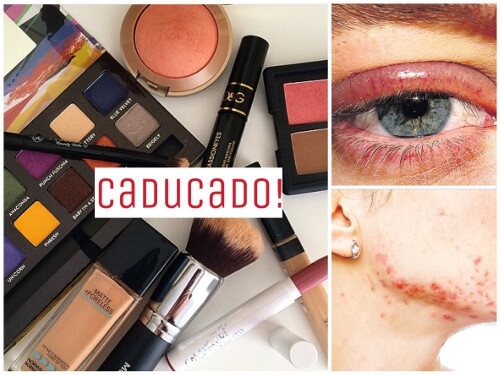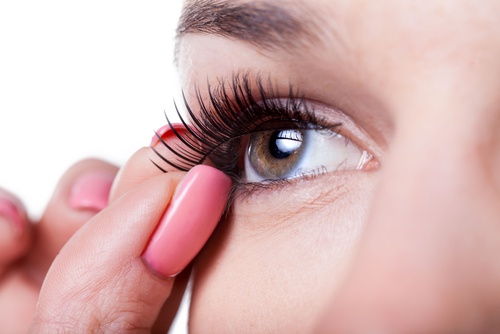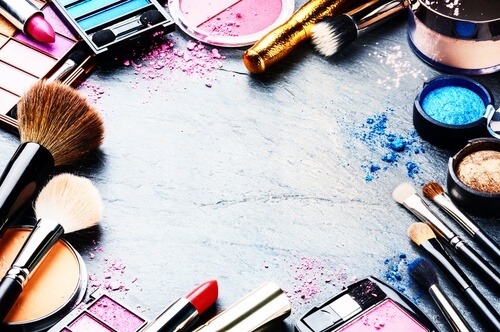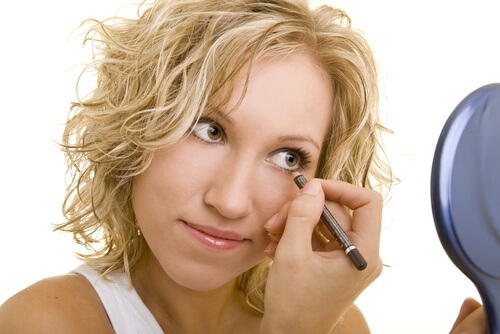5 Ways Makeup Can Be Harmful to Your Health


Reviewed and approved by the doctor Karla Henríquez
For the majority of women, makeup is one of the greatest beauty aids. It’s also a great help in enhancing the skin’s appearance and the face in general. Yet makeup can also be harmful to you if you misuse it.
For years, the cosmetic industry has worked to develop and produce thousands of beauty products to meet every woman’s needs.
However, not knowing how to correctly use them or poor habits regarding their use has led to an increase in visits to the dermatologist for skin problems.
For this reason, it’s really important to be aware of what you should avoid when using these products. These are some of the ways using makeup can be harmful to your skin and health.
1. Sharing cosmetics
It’s normal to share clothing, accessories and other fashion items among friends and family.
This leads many women to believe there is nothing wrong with sharing their makeup products, but watch out!
Sharing lipstick, eyeliners, powders and even applicator brushes increases your chances of contracting a viral infection like conjunctivitis and cold sores.
In addition, if the other person has any kind of acne, you also run the risk of spreading the bacteria from their skin to yours.
We recommend reading: 5 Homemade Remedies for Beautiful Eyes
2. Using fake lashes

Long, full eyelashes give you a more expressive and beautiful look which often leads many women to try the fake eyelashes that need to be glued on.
Using this product on your eyelids can be harmful, as many of these products contain formaldehyde, which can irritate the eyes.
Incorrect application of this product can cause the natural eyelashes to become brittle and break. However, by taking the proper precautions, you can make their application and use a little safer.
3. Sleeping with makeup can be harmful
Many women arrive home tired after work or a night out and don’t even think about removing their makeup. A big mistake!
This habit prevents the skin from getting enough oxygen to repair itself while your body rests which can lead to problems the next day. The face, especially the contours around the eyes, often suffers the most from this mistake.
Cosmetics block the pores and acne can develop as a consequence.
Moreover, some products cause eye irritation as they can get in your eyes during the night without your noticing.
Designer makeup for the eyes contains oils and waxes which can block the glands and cause inflammation like conjunctivitis.
4. Using expired makeup can be harmful

Just like with food, makeup comes with expiration dates that let you know the lifespan of the product before the components degrade and become harmful.
After the expiration date, the composition will likely start to undergo changes and shouldn’t be applied to the skin.
Good-quality makeup often lasts much longer, but still has an expiration date that you need to respect.
Using an expired product can cause irritation or infection because they can house bacteria.
Also, after the expiration date has passed, these products often lose their pleasant aroma and their consistency is likely altered.
5. Applying eyeliner to the edge of the eyelid

The eyes, like many parts of the body, possess natural bacteria that can be good or bad, depending on the stimulus and function.
Using products like eyeliner on the interior part of the eyelid can introduce external bacteria that increases your risk of developing infections and clogged sebaceous glands.
It’s estimated that 30% of eyeliner particles enter the eye when the product is applied to the edge of the eyelid.
All cited sources were thoroughly reviewed by our team to ensure their quality, reliability, currency, and validity. The bibliography of this article was considered reliable and of academic or scientific accuracy.
- Bielsa I. Indicaciones y contraindicaciones de los cosméticos en las distintas etapas de la vida. Medicina Cutánea Ibero-Latino-Americana 2005; 33 (3): 137-138. Available at: http://www.medigraphic.com/cgi-bin/new/resumen.cgi?IDARTICULO=5420. Accessed 12/20, 2018.
- De Antonio A. El maquillaje puede ser fatal para tus ojos. ABC 2012. Available at: https://www.abc.es/20120320/sociedad/abci-mujeres-ojos-maquillaje-201203200803.html. Accessed 12/20, 2018.
- Latorre N, Silvestre J, Monteagudo A. Dermatitis de contacto alérgica por formaldehído y liberadores de formaldehído. Actas Dermo-Sifiliográficas 2011; 102 (2): 86-97. Available at: https://www.sciencedirect.com/science/article/abs/pii/S0001731010004710. Accessed 12/20, 2018.
This text is provided for informational purposes only and does not replace consultation with a professional. If in doubt, consult your specialist.








